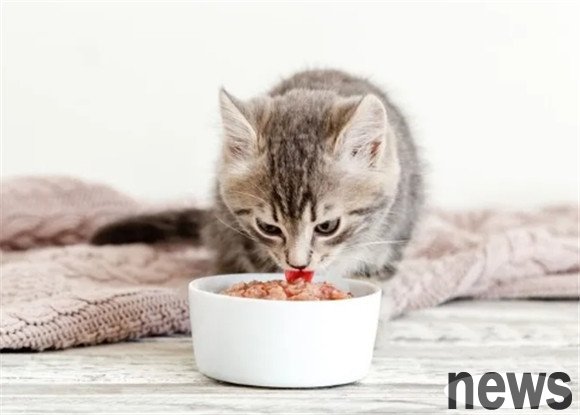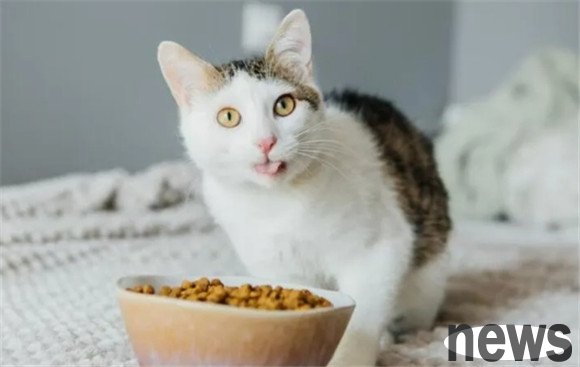The vomiting of a two-month-old cat may make the owner worry because the kitten's body is still in the growth stage and health issues need to be paid attention to in time. Vomiting is a manifestation of physical discomfort in cats and may be caused by a variety of reasons. Here are some common causes of vomiting for kittens.

1. Dietary problems
Kittens eat too quickly may cause vomiting, because eating quickly will cause food to clog the esophagus or stomach and cause discomfort. Eating too much can also lead to vomiting because the stomach capacity is limited. Intake of too much food can cause stomach discomfort and trigger vomiting reactions. In addition, food discomfort can also lead to vomiting, as certain foods may have adverse effects on the kitten's digestive system, causing indigestion or allergic reactions.
2. Digestive system problems
Discomfort or disease in the digestive system is also one of the common causes of vomiting in kittens. Indigestion may be caused by food allergies, eating bad food or dietary changes, resulting in gastrointestinal discomfort and vomiting symptoms. In addition, intestinal infections, parasitic infections or other diseases may also affect the kitten's digestive system and cause symptoms such as vomiting. If the kitten vomits frequently or has other abnormal symptoms, it is recommended to seek medical examination in time to determine the cause and take corresponding treatment measures.
3. Infection with
gastrointestinal infection or other infections is also one of the possible causes of vomiting in kittens. These infections may be caused by bacteria, viruses or other pathogens, which can affect the function of the kitten's digestive system and lead to symptoms such as vomiting. In addition to vomiting, infection may also be accompanied by other symptoms, such as diarrhea, loss of appetite, abnormal body temperature, etc. If the kitten has these symptoms, it is recommended to seek medical treatment in time to determine the cause and provide corresponding treatment.
4. Parasite infection
Parasite infection is also one of the common causes of vomiting in kittens. Parasites such as roundworms and tapeworms will parasitize in the kitten's digestive tract, interfering with their normal digestive function and causing digestive system problems such as vomiting. In addition to vomiting, parasitic infections may also lead to symptoms such as weight loss, sticky hair, and diarrhea in the kitten. Regular deworming is one of the important measures to prevent and control parasitic infections. If you find that the kitten may be symptoms caused by parasitic infection, you should seek medical treatment in time and treat it according to the veterinary advice.
5. Excessive eating
Kittens eat too fast or eat too much may also lead to vomiting. When a kitten eats too fast or consumes too much food, the food may not be fully contained in the stomach, causing stomach discomfort and vomiting. To avoid this, consider dividing the kitten’s food into several portions, feeding it multiple times, or using specially designed food utensils that slow down the speed of eating. In addition, you should also ensure that the kitten eats regular diet and avoid consuming too much food at one time. If the kitten often vomits because they eat too fast or eat too much, it is recommended to consult a veterinarian for further diagnosis and treatment.

6. Allergic reactions
Allergic to certain foods or the environment may cause vomiting of kittens. Food allergies usually manifest as symptoms such as vomiting, diarrhea, and itchy skin after food intake. Environmental allergies can cause respiratory or skin discomfort and even vomiting due to exposure to allergens such as dust mites, pollen or chemicals. If the kitten is suspected of having food or environmental allergies, seek medical attention in time and follow the veterinary advice for treatment and management.
7. Other health problems
such as gastrointestinal diseases, liver diseases, kidney problems, etc. may also cause vomiting of kittens. These diseases may affect the function of the kitten's digestive system, causing food to not be digested or absorbed normally, and thus causing vomiting. In addition to vomiting, kittens may also experience other symptoms, such as loss of appetite, diarrhea, weight loss, etc. If the kitten vomits frequently or experiences other abnormal symptoms, it is recommended to seek medical treatment in time so that the correct diagnosis and treatment is obtained.
Although vomiting is more common in cats, if it is frequent or accompanied by other abnormal symptoms, such as loss of appetite, diarrhea or abnormal behavior, it is recommended to seek medical treatment in time. Taking your cat to the veterinary examination regularly, keeping the environment clean, and providing good diet and living habits can help reduce the risk of vomiting for kittens and ensure their healthy growth.